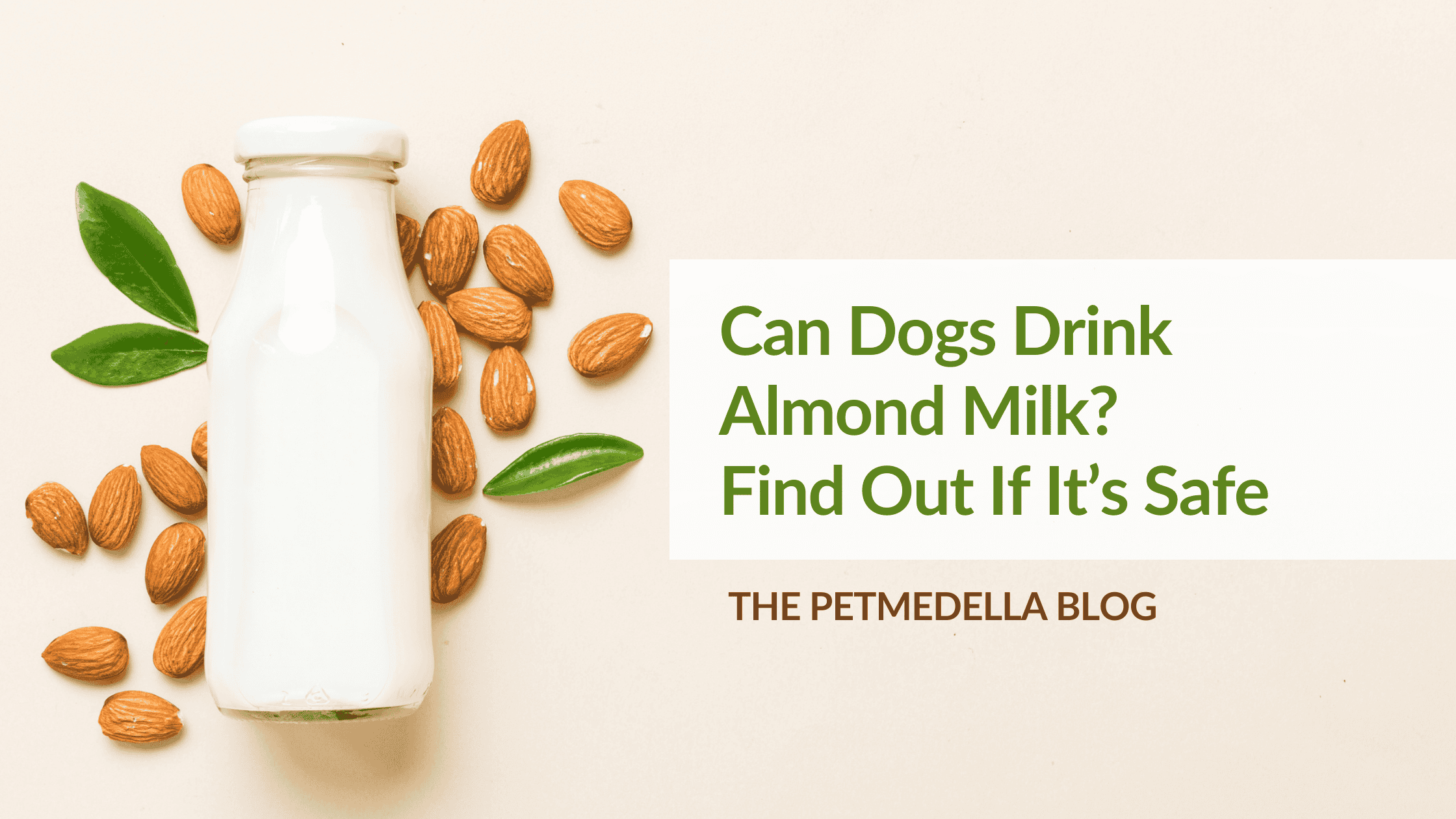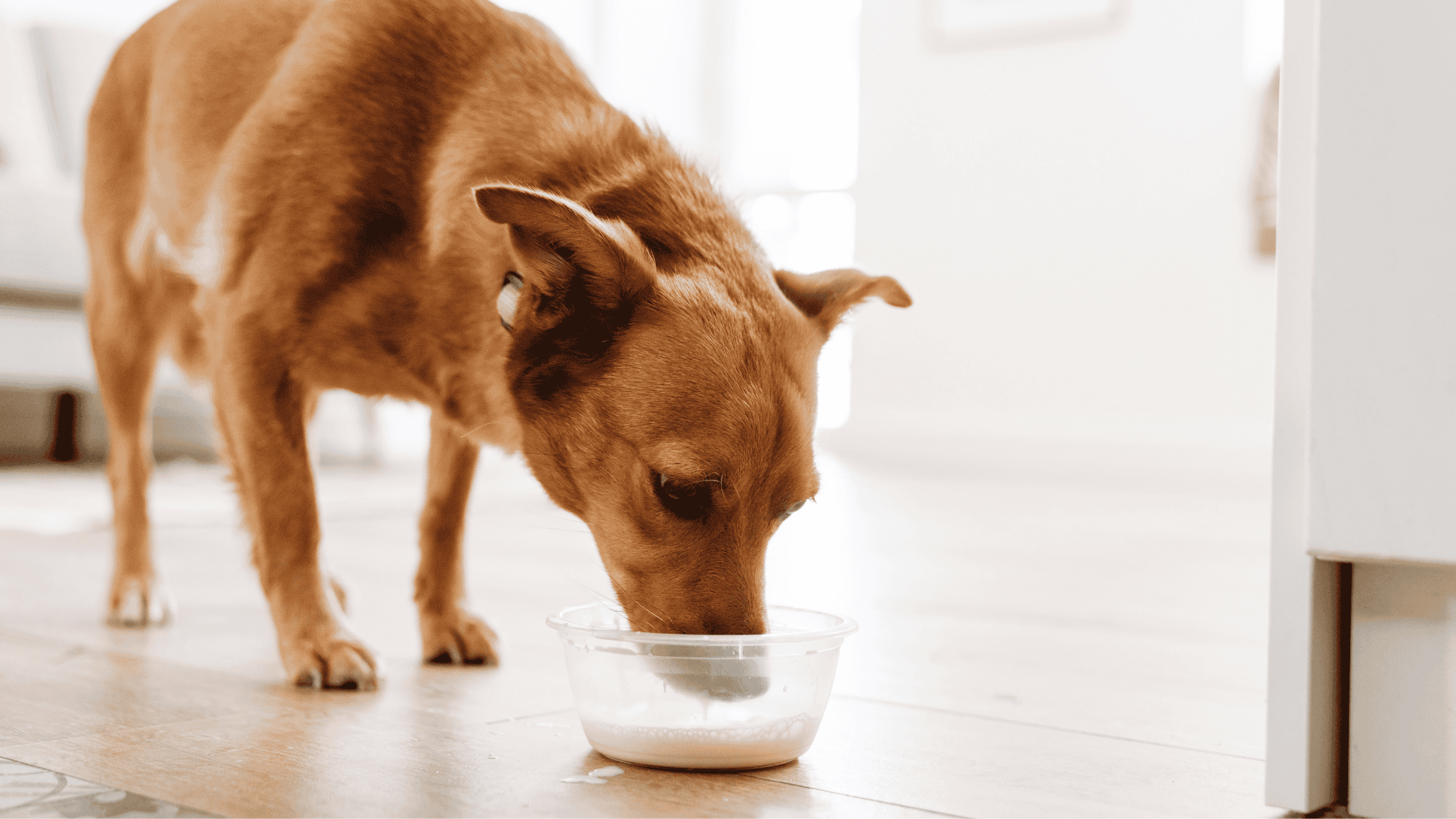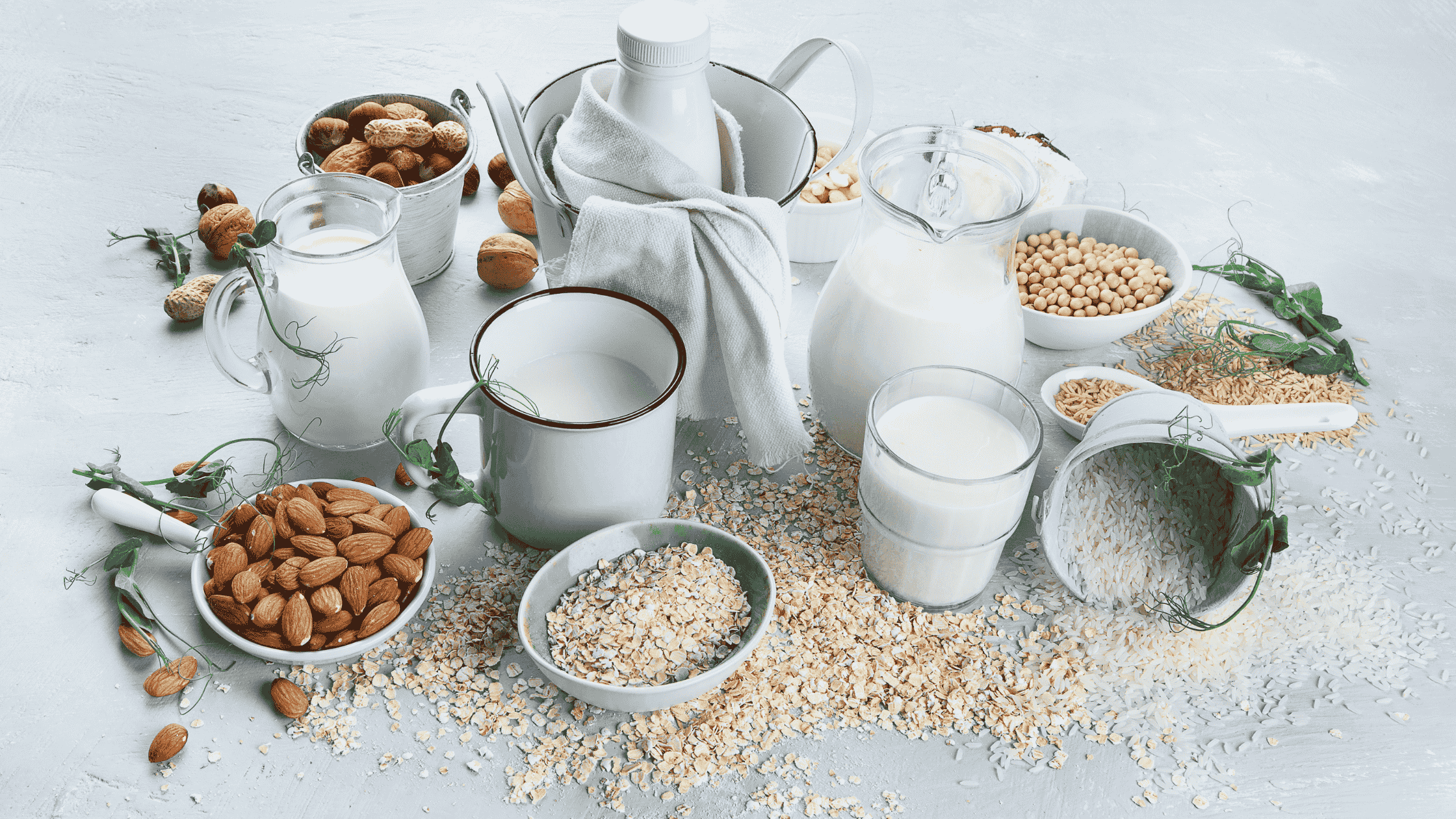
Is There a “Best Milk for Dogs”?
Can dogs drink almond milk? If you’re a pet owner who eats plant-based, you might be wondering what the best milk for dogs is, or cats for that matter. Is almond milk better than cow milk? Is it ok for kittens?
But here’s the thing – whether almond milk and dogs mix well isn’t as simple as it seems, and there’s quite a bit of confusion about the whole “best milk for dogs” debate.
Before we dive into the details, a quick reminder: Not all pets react the same way to every food. It’s important to consider your pet’s breed, specific needs, and digestive health. Always consult a licensed veterinarian if you suspect a health issue related to diet.

Can Pets Drink Milk Like Humans?
You might think of milk as a healthy drink, but when it comes to pets—especially as they age—milk can cause digestive problems. Many adult dogs (like humans) lack lactase, the enzyme that helps break down lactose, the sugar in milk. While milk is beneficial for young animals like puppies and kittens, it becomes harder for older dogs and cats to digest.
Most conventional dairy products are pasteurized, which actually removes lactase. While some pet owners are experimenting with raw milk, it still may not be ideal for your pet, especially if they’re sensitive to dairy. This is the case for cats because they are lactose intolerant. This can create a lot of digestive stress for your poor kitty and maybe even your dog!
What About Nut or Plant Milk?
Plant-based milk, like almond and soy milk, is becoming a popular dairy alternative, but it comes with its own set of considerations when thinking about almond milk and dogs. In small amounts, plain, unsweetened almond milk is generally okay for pets. However, it should only be an occasional treat.
While it may be safe for cats, it doesn’t offer much nutrition for them. They need a high protein diet, and almond, or any other plant milk, can’t provide this dietary need.
It’s great to think of alternatives to water, especially when you need to keep your pet hydrated in warm weather. Cats and dogs have different diet rules, and adding any milk, plant or animal-based, requires consideration for both.
Let’s cover some common plant-based milks over almond milk:
- Soy Milk: Soy milk for dogs is a bit of a mixed bag. While it’s not inherently toxic, it’s not the best choice for your dog’s overall health.
This one is trickier. Soy can be a common allergen for pets and should not be a regular part of their diet. It’s also often found in commercial pet foods as a filler, so be cautious of overexposure.
- Coconut milk: Some pet parents try coconut milk to improve their dog or cat’s skin and coat. To be fair, coconut milk is rich in beneficial fatty acids like lauric, palmitic, myristic, and medium-chain saturated fatty acids. Some of these fatty acids may have antimicrobial properties to fight off bacterial and other invaders in the body and boost the immune system.
- Oat milk. This is generally safe for dogs and cats in small amounts, but it should not be a regular part of their diet. It’s naturally lactose-free, so it’s easier for most cats to digest than dairy milk. Oat milk doesn’t offer much in terms of nutritional value for cats. Cats are obligate carnivores, which means their bodies are designed to thrive on animal-based proteins and fats. Oat milk lacks the essential amino acids and other nutrients cats need for a healthy diet. Oat milk contains fiber, which can be good for digestion in small amounts. However, in larger quantities, fiber could potentially cause mild stomach upset or diarrhea in cats, especially if they’re not used to it. Oat milk can be used occasionally as a treat or to add variety to your cat’s diet, especially if you’re trying to encourage more hydration. However, water should always be the primary liquid for your cat.
Beware of Sweeteners
No matter what you decide to feed your pet, please check for sweeteners, artificial or natural! Excess sugar is as harmful to pets as it is to humans. Artificial sweeteners have no place in a pet’s diet, especially any plant-based milk that contains xylitol. Xylitol is toxic to dogs and cats. This can be fatal.
A Better Alternative: Goat Milk
If you want to give your dog a milk-like treat, goat milk is an excellent option. Raw, unpasteurized goat milk is easier for your dog to digest compared to cow’s milk and even some nut milk. It contains naturally occurring enzymes that help break down nutrients, making it more digestible.
Raw goat milk from grass-fed goats is rich in caprylic acid, a fat known for its antifungal properties. It can help reduce yeast issues in dogs, such as yeasty feet, ears, and even tear stains. Many pet owners have seen significant improvements in just a few weeks of adding goat milk to their pets’ diets.
Goat milk also has prebiotics—natural compounds that support gut health by feeding beneficial bacteria in the intestines. A healthy gut means a stronger immune system and better overall health. Additionally, goat milk is lower in sugar and higher in fat, which can benefit pets at risk of diabetes.
What about your cat? Goat’s milk does have less lactose than cow’s milk, but it still can upset your cat’s digestive system. It’s high in fat, and this can cause diarrhea.
For some pets with food sensitivities, goat milk can be a great option to add to their diet. This is mainly true for dogs over cats. It’s especially helpful if you’re looking for something to mix with your dog’s dry food, enhance raw food, or transition your pet to a raw food diet.
While milk (especially from animals or plants) might not be the best choice for all pets, raw goat milk stands out as a digestive-friendly, nutrient-rich option that can support overall health. Always check with your veterinarian before introducing new foods, and be mindful of your pet’s individual needs.


